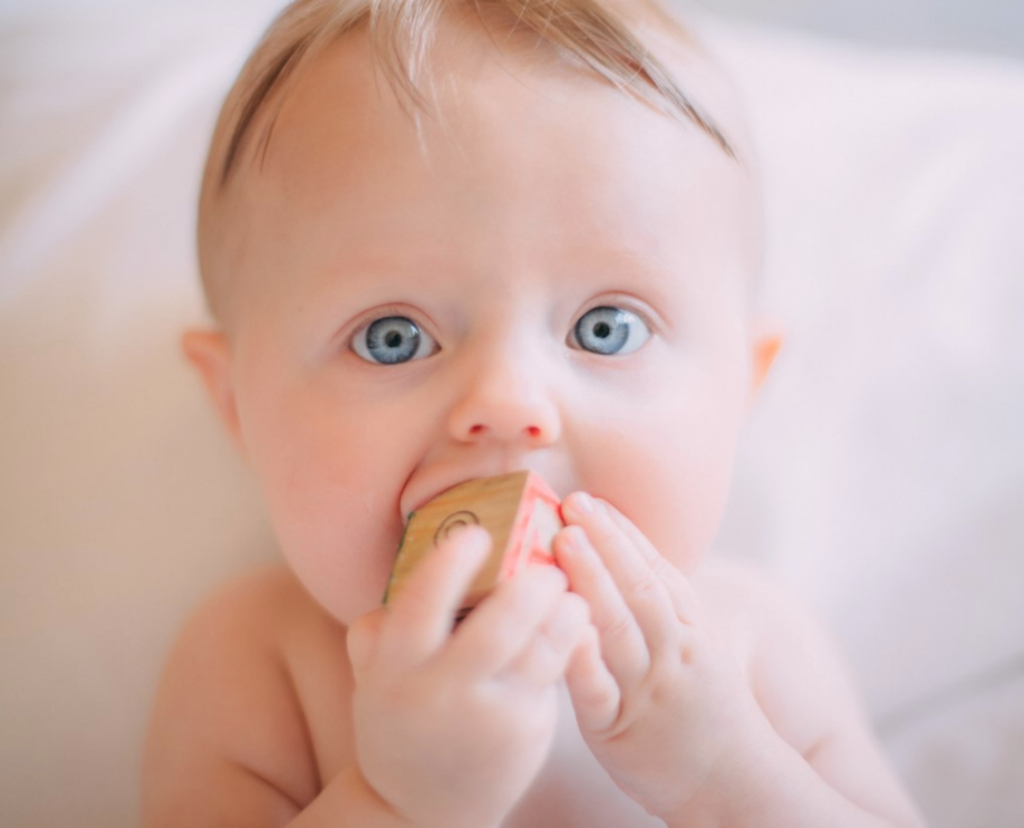
BLOG
As any parent of a baby knows well, teething can play a major role in sleep interruptions. Teething may be really tough for some babies, and not phase some others. ⠀⠀⠀⠀⠀⠀⠀⠀⠀
⠀⠀⠀⠀⠀⠀⠀⠀⠀
Teething can lead to more difficulty falling asleep as well as difficulty staying asleep, since teething pain tends to worsen when a baby is lying down. It can cause gum irritation, mild irritability, drooling, and a very minor rise in body temperature (0.1–0.2 degrees). If your child is experiencing more severe symptoms such as high fever, vomiting or diarrhea, this is unlikely to be caused by a new tooth and may warrant a visit to the primary care provider. ⠀⠀⠀⠀⠀⠀⠀⠀⠀
⠀⠀⠀⠀⠀⠀⠀⠀⠀
Disruptions from teething are usually seen in an eight to ten day window (four days before the tooth breaks through, 2 days while it is emerging, and four days after).⠀⠀⠀⠀⠀⠀⠀⠀⠀
⠀⠀⠀⠀⠀⠀⠀⠀⠀
Staying as consistent as possible during this time is helpful, but extra snuggles and cuddles go a long way to easing a baby’s discomfort.⠀⠀⠀⠀⠀⠀⠀⠀⠀
⠀⠀⠀⠀⠀⠀⠀⠀⠀
Sometimes during periods of teething, a baby may go on a nursing strike, so if you have concerns about your supply, you may want to pump during teething. Babies also often take smaller more frequent feeds when they are cutting a new tooth, so feeding on demand during the day can help to ensure that they aren’t waking more frequently due to a nutritional reasons. ⠀⠀⠀⠀⠀⠀⠀⠀⠀
⠀⠀⠀⠀⠀⠀⠀⠀⠀
Finally, if you have cleared it with your primary care provider, and you feel comfortable doing so, providing your baby with some pain relief medication can help alleviate some of the inevitable wakes due to teething pain.
